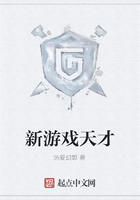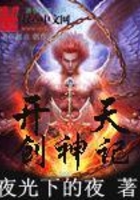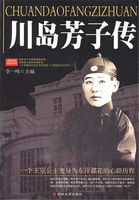The Countess remarks that the Courier seems hardly capable of obeying his orders. Hearing this, the man admits that he is ill. He, too, is suffering from a cold; he has been kept waiting in a draught at the shop where he bought the lemons; he feels alternately hot and cold, and he begs permission to lie down for a little while on his bed.
'Feeling her humanity appealed to, the Countess volunteers to make the lemonade herself. My Lord takes the Courier by the arm, leads him aside, and whispers these words to him:
"Watch her, and see that she puts nothing into the lemonade;then bring it to me with your own hands; and, then, go to bed, if you like."'Without a word more to his wife, or to the Baron, my Lord leaves the room.
'The Countess makes the lemonade, and the Courier takes it to his master.
'Returning, on the way to his own room, he is so weak, and feels, he says, so giddy, that he is obliged to support himself by the backs of the chairs as he passes them. The Baron, always considerate to persons of low degree, offers his arm.
"I am afraid, my poor fellow," he says, "that you are really ill."The Courier makes this extraordinary answer: "It's all over with me, Sir:
I have caught my death."
'The Countess is naturally startled. "You are not an old man,"she says, trying to rouse the Courier's spirits. "At your age, catching cold doesn't surely mean catching your death?" The Courier fixes his eyes despairingly on the Countess.
"My lungs are weak, my Lady," he says; "I have already had two attacks of bronchitis. The second time, a great physician joined my own doctor in attendance on me. He considered my recovery almost in the light of a miracle. Take care of yourself," he said. "If you have a third attack of bronchitis, as certainly as two and two make four, you will be a dead man. I feel the same inward shivering, my Lady, that I felt on those two former occasions--and I tell you again, I have caught my death in Venice."'Speaking some comforting words, the Baron leads him to his room.
The Countess is left alone on the stage.
'She seats herself, and looks towards the door by which the Courier has been led out. "Ah! my poor fellow," she says, "if you could only change constitutions with my Lord, what a happy result would follow for the Baron and for me! If you could only get cured of a trumpery cold with a little hot lemonade, and if he could only catch his death in your place--!"'She suddenly pauses--considers for a while--and springs to her feet, with a cry of triumphant surprise: the wonderful, the unparalleled idea has crossed her mind like a flash of lightning.
Make the two men change names and places--and the deed is done!
Where are the obstacles? Remove my Lord (by fair means or foul)from his room; and keep him secretly prisoner in the palace, to live or die as future necessity may determine. Place the Courier in the vacant bed, and call in the doctor to see him--ill, in my Lord's character, and (if he dies) dying under my Lord's name!'
The manuscript dropped from Henry's hands. A sickening sense of horror overpowered him. The question which had occurred to his mind at the close of the First Act of the Play assumed a new and terrible interest now. As far as the scene of the Countess's soliloquy, the incidents of the Second Act had reflected the events of his late brother's life as faithfully as the incidents of the First Act.
Was the monstrous plot, revealed in the lines which he had just read, the offspring of the Countess's morbid imagination? or had she, in this case also, deluded herself with the idea that she was inventing when she was really writing under the influence of her own guilty remembrances of the past? If the latter interpretation were the true one, he had just read the narrative of the contemplated murder of his brother, planned in cold blood by a woman who was at that moment inhabiting the same house with him. While, to make the fatality complete, Agnes herself had innocently provided the conspirators with the one man who was fitted to be the passive agent of their crime.
Even the bare doubt that it might be so was more than he could endure.
He left his room; resolved to force the truth out of the Countess, or to denounce her before the authorities as a murderess at large.
Arrived at her door, he was met by a person just leaving the room.
The person was the manager. He was hardly recognisable; he looked and spoke like a man in a state of desperation.
'Oh, go in, if you like!' he said to Henry. 'Mark this, sir!
I am not a superstitious man; but I do begin to believe that crimes carry their own curse with them. This hotel is under a curse.
What happens in the morning? We discover a crime committed in the old days of the palace. The night comes, and brings another dreadful event with it--a death; a sudden and shocking death, in the house.
Go in, and see for yourself! I shall resign my situation, Mr. Westwick: I can't contend with the fatalities that pursue me here!'
Henry entered the room.
The Countess was stretched on her bed. The doctor on one side, and the chambermaid on the other, were standing looking at her.
From time to time, she drew a heavy stertorous breath, like a person oppressed in sleeping. 'Is she likely to die?'
Henry asked.
'She is dead,' the doctor answered. 'Dead of the rupture of a blood-vessel on the brain. Those sounds that you hear are purely mechanical--they may go on for hours.'
Henry looked at the chambermaid. She had little to tell.
The Countess had refused to go to bed, and had placed herself at her desk to proceed with her writing. Finding it useless to remonstrate with her, the maid had left the room to speak to the manager.
In the shortest possible time, the doctor was summoned to the hotel, and found the Countess dead on the floor. There was this to tell--and no more.
Looking at the writing-table as he went out, Henry saw the sheet of paper on which the Countess had traced her last lines of writing.
The characters were almost illegible. Henry could just distinguish the words, 'First Act,' and 'Persons of the Drama.' The lost wretch had been thinking of her Play to the last, and had begun it all over again!















